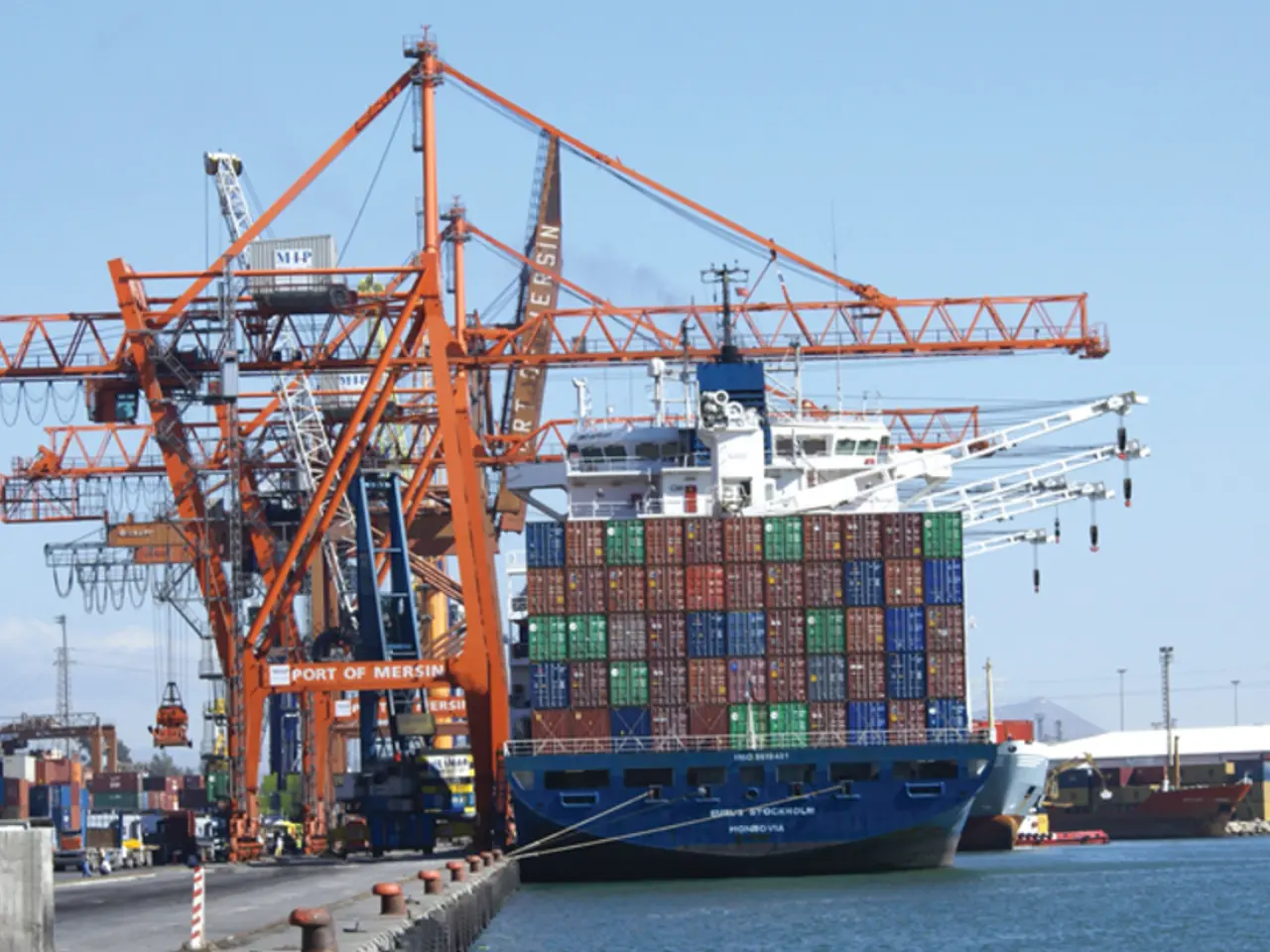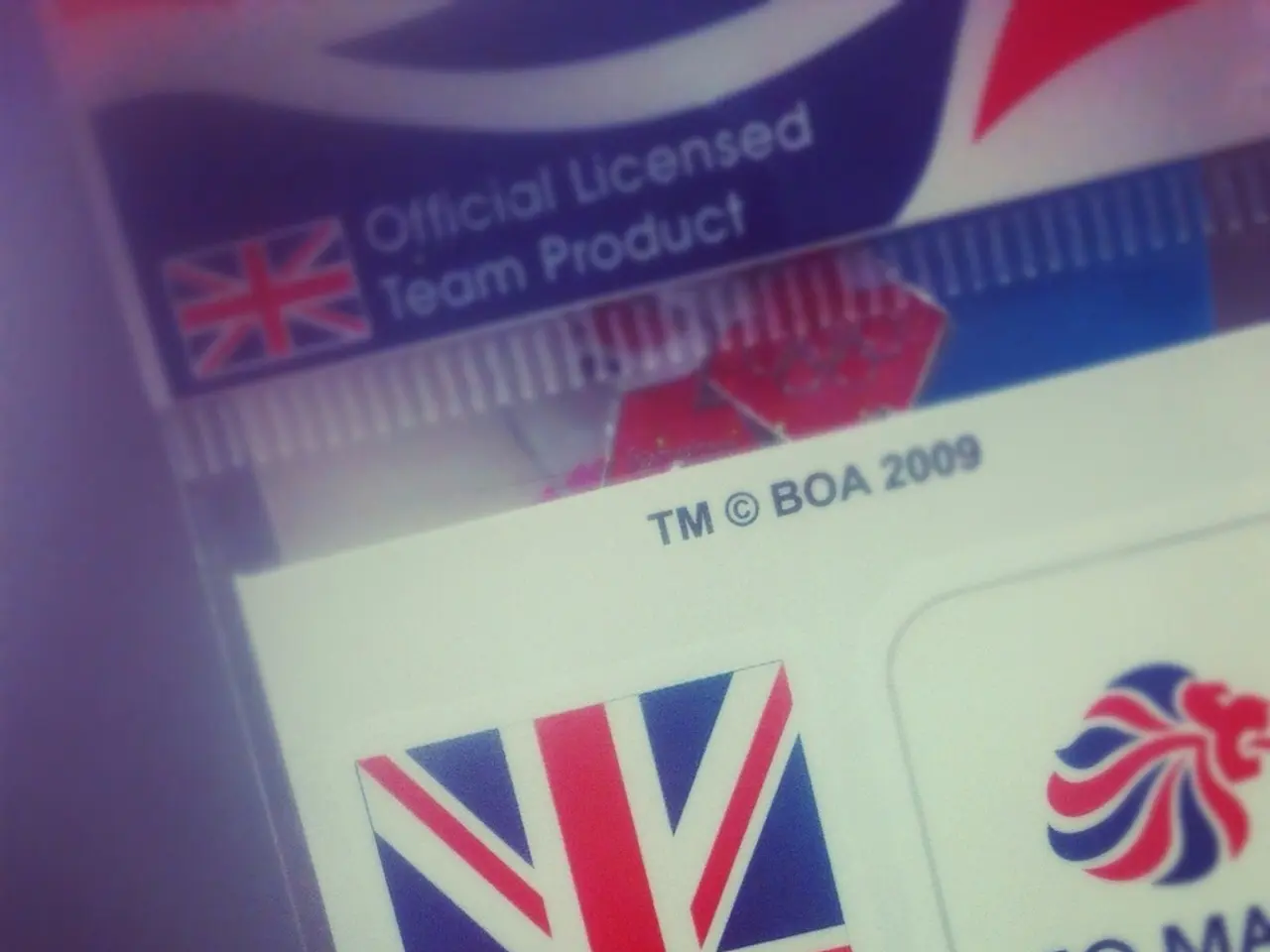Support for the Port Cranes Tax Credit Act by AAPA as a more intelligent option than tariffs
In an effort to strengthen the competitiveness, security, and operational capacity of America's ports, the American Association of Port Authorities (AAPA) has welcomed the introduction of the Port Cranes Tax Credit Act of 2025. This bill, proposed by Representatives Mike Ezell (R-MS) and Nicole Malliotakis (R-NY), aims to reduce dependence on foreign-built cranes for economic and national security benefits.
The legislation proposes a 25% investment tax credit for U.S. facilities that manufacture or repair ship-to-shore (STS) and mobile harbor cranes. Furthermore, it offers a production credit that starts at 40%, increasing to 60% if at least 90% of crane components are made in America.
The bill is seen as a strategic alternative to imposing tariffs on cranes, aiming to incentivize domestic manufacturing and repair of port cranes, supporting reshoring efforts in the U.S. port infrastructure sector. If passed, it could foster job creation, reduce reliance on imported port cranes, and enhance the resilience and competitiveness of U.S. ports.
U.S. ports have expressed concerns about a revised maritime tariff plan, with the potential cost of proposed tariffs on Chinese cranes for U.S. ports being estimated in billions of dollars. The AAPA President and CEO, Cary S. Davis, has emphasized that the legislation offers a better path than tariffs.
The concerns center around the potential threat to trade and inflation. These warnings were made in both "Global Logistics" and "3pls". The bill proposes tax incentives to encourage domestic crane production, which could support broader supply chain security and infrastructure modernization efforts, benefiting port operations critical to trade and logistics.
The potential impacts include strengthening the domestic crane manufacturing industry by making U.S. production more financially attractive. This could stimulate growth in related manufacturing sectors as well. The AAPA is urging swift action in Congress, calling for the House Ways and Means Committee to move the bill forward and for the Senate to introduce companion legislation.
The bill is supported by port leaders across the country, including Richard J. Hendrick Sr., CEO of the Port of Albany, Paul Anderson, CEO of Port Tampa Bay, and Bo Ethridge, Port Director at Pascagoula. As the bill moves through the legislative process, it will be interesting to see how it impacts the U.S. port industry and the broader economy.
The Port Cranes Tax Credit Act of 2025, targeting U.S. ports' competitiveness and security, offers a strategic approach to domestic crane manufacturing, as opposed to imposing tariffs. By providing a 25% investment tax credit and up to 60% production credit for facilities manufacturing or repairing ship-to-shore and mobile harbor cranes, the bill aims to diminish reliance on imported cranes, foster job creation, stimulate domestic growth, and bolster supply chain security. Proponents in the business and political sectors, like port leaders from Albany, Tampa Bay, and Pascagoula, are urging swift Congressional action to pass this bill, with potential positive impacts on the U.S. port industry and broader economy. global trade, finance, politics, business, general-news, supply chain.


![Elon Musk Discusses Potential Acquisition in Exclusive Interview [VIDEO]](/en/content/images/size/w1280/format/webp/20250803165226_tesla-optimus-v3-tesla.jpeg)

